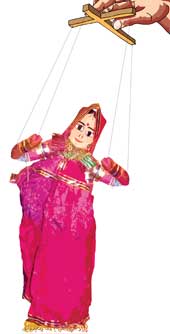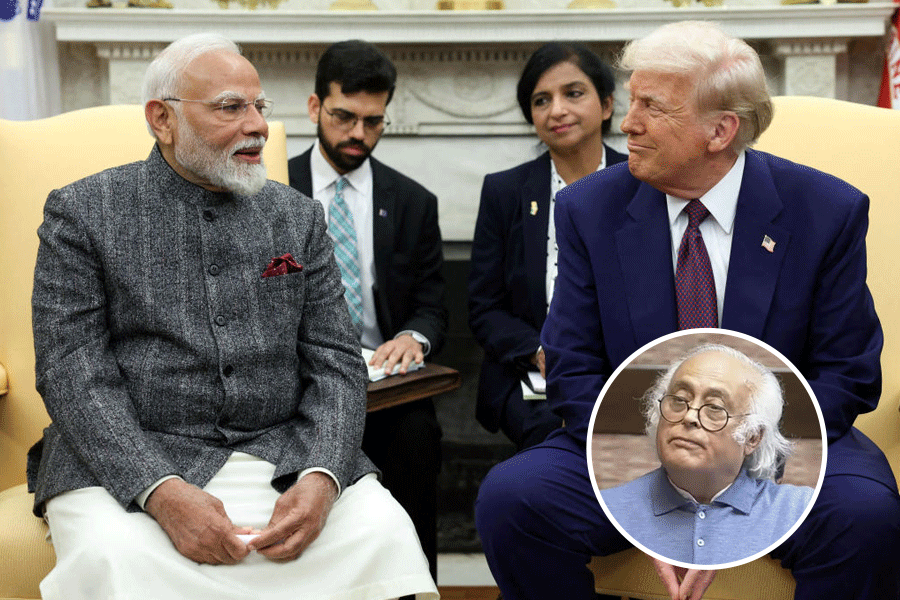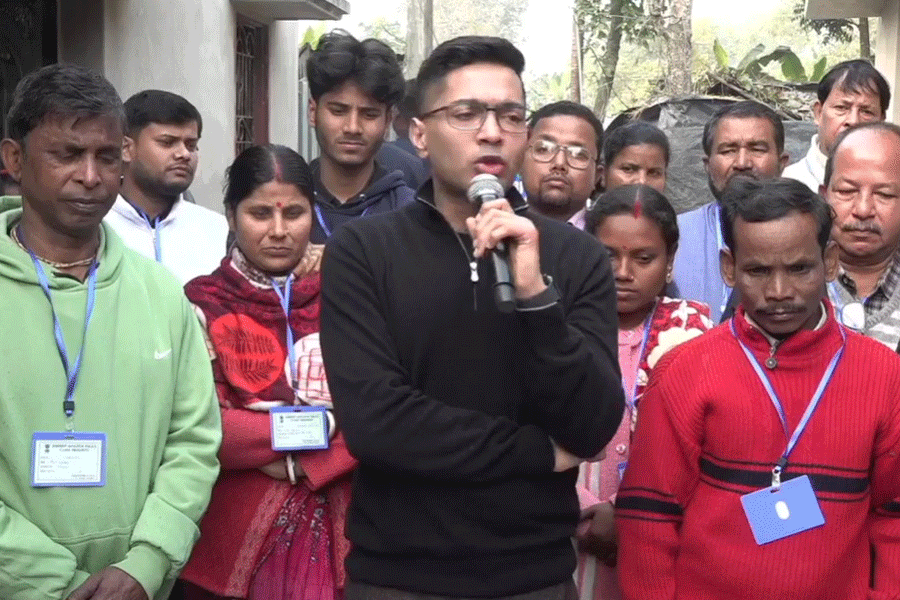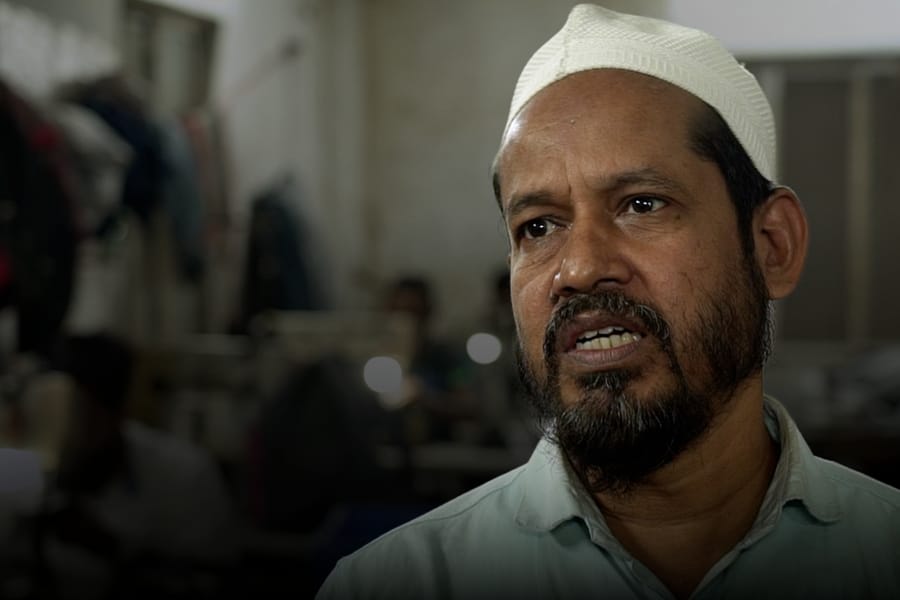 |
When Natasha Aggarwal, owner of the popular and fast-growing gelateria chain Mamma Mia, told her parents that she wished to marry a Bengali, there were no fireworks at all. Not that she expected any. Her parents, who belong to a well known Marwari business family in Calcutta, supported her decision — just as they had backed her when she went to Italy to learn making ice cream the Italian way and then came back to launch Mamma Mia in 2005.
But Aggarwal’s story is the exception rather than the rule in Calcutta’s supernumerous Marwari community. Most of the city’s Marwari girls let their parents pick the groom — read: a suitable Marwari boy. Nothing wrong in that. But in recent months there have been some alarming instances which seem to suggest that if a Marwari girl does buck tradition and orthodoxy and falls in love with a non-Marwari, she will probably let herself in for a tidal wave of parental opposition.
Here, Priyanka Todi’s family takes top honours, of course. Even as the CBI tries to determine to what extent Ashok Todi was involved in the mysterious death of his son-in-law Rizwanur Rahman, it has come to light that he and his brother-in-law Santosh Murarka forced Priyanka’s cousin Spriha to leave her husband Tarapada Hazra. Hazra too was deemed shamefully unsuitable because of his humble economic background.
In yet another case, in September, businessman Chandra Prakash Tulsiyan had his son-in-law Manoj Jaiswal arrested after his daughter Dolly ran away and married him. Scalded by the furore over Rizwanur, the police later filed a counter case against Tulsiyan for harassing Jaiswal. The reason for his righteous paternal wrath? Jaiswal, though a Marwari, simply did not make the cut socially and financially.
It would, of course, be grossly unfair to judge an entire community on the basis of a few extreme cases. Just because a Todi or a Tulsiyan reacted with such primitivism, it would be wrong to assume that every second Marwari family would bludgeon its daughters into submission if they were so wanton as to seek love outside their class or community. However, the fact remains that when it comes to marriage, very few Marwari girls do cross the line set by their parents. (Cases of Marwari boys marrying outside the community are relatively less rare — a famous and early example being the embattled former cricket supremo, Jagmohan Dalmiya, who is married to a Bengali woman.)
Jyoti Agarwal, who runs a flower boutique in Salt Lake and is a daughter of the family that owns the Calcutta-based Emami group, admits that she does not know of a single Marwari girl who has ventured into love and marriage outside her community. “We are brought up like that only. We can’t even think of doing such a thing,” she says flatly, with the air of someone who knows she’s on an unshakeable moral high ground.
Even those who claim to have had a liberal upbringing say that love marriage, especially with someone from outside the community, is definitely frowned upon. Sumedha Gupta, who runs an apparels boutique and is as yet unmarried, says that though her family allowed her every freedom in terms of education or work, when she does get married it will probably be to a Marwari boy chosen by her parents. “It is not compulsory, but it’s likely.”
So why is it that so many Marwari girls who go on to manage successful businesses and are obviously well able to think for themselves stop short of taking the initiative when it comes to choosing a life partner? Is it because they have an innate respect for tradition and filial duty or is it because they know that any such transgression will be swiftly crushed and promptly hushed up? Or is it merely because the family pressure to conform to the rules of matrimony is simply too great to be overcome?
Most agree that whether that pressure is subtle or stifling depends on the nature of each individual family — its level of education, its conservatism or the lack of it. For instance, industrialist Harsh Neotia feels that though there may be pockets of significant pressure, “on the whole, Calcutta’s Marwaris are a lot more liberal nowadays. I, for one, would certainly not mind if my daughter grew up and married someone outside the community,” he says with a laugh.
Prabha Khaitan, a well known Marwari writer and businesswoman, too believes that the community is now much more open to the idea of mixed marriages. The inflexibility pertains to class rather then community, she feels. “Because Marwaris are so conscious of money and status, they will accept someone provided he belongs to the same financial class. Barabar mein baithna chahiye — that’s an imperative,” she says.
Would the Rizwanur-Priyanka love story have had a different ending if he’d been a barabar, an equal, a scion of a rich family? Perhaps. (Or perhaps not — he was a Muslim, remember?) Of course, no parent — Marwari or otherwise — is wildly excited by the idea of his daughter marrying beneath her, as it were. Sudha Dalmiya, a city-based wedding planner, insists that by and large, Marwaris do not have a problem if a daughter marries an “outsider” as long as the boy is eligible. So how many such mixed marriages has she organised? None so far, she admits.
There is a socio-historical subtext to the fact that mixed marriages continue to be a relative rarity in most Marwari families of Calcutta. As Professor Samita Sen of the School of Women’s Studies, Jadavpur University, explains, “Traditionally, the family has always been an important part of the business organisation of Marwari business families. In this set up, you had to control the entry of strangers into the family fold. Besides, marriages were an occasion to forge and strengthen business ties.”
Therefore, in general, an “unwise” union is perhaps considered more disruptive and catastrophic among Marwaris than it is in some other communities. Again, because Marwaris have traditionally been a migrant community —most of Calcutta’s Marwaris migrated from the Shekhawati region of Rajasthan — they have always striven to hold on to their customs and culture in a foreign land. Arranged marriages within the community were one way of doing that.
“At some psychological level, these attitudes persist even today,” says Kanupriya Jhunjhunwala, who, like Mamma Mia’s Aggarwal, belongs to that rare breed of Marwari girls who’s engaged to be married to a non-Marwari. Did she face any parental opposition when she announced her decision to wed a Bengali? “Not really,” says Jhunjhunwala, who went to the US to study and now works with Wipro. “But then my parents are truly liberal.”
Evidently, the problem arises when parents want to be liberal — but only up to a point. So they may be liberal enough to let the daughter remain unmarried and take multi-media classes — as Priyanka Todi was allowed to — and yet find it intolerable that she should want to exercise her free will in choosing her life partner.
But there’s little doubt that this too shall pass. For Calcutta’s Marwari community is clearly in a transitional phase. Jhunjhunwala feels that in five to six years’ time one will see many more instances of girls wishing to marry outside the community. “It’s bound to happen as more and more girls say no to early marriage and go for higher education, and are exposed to the world outside,” she says. Agrees Natasha Aggarwal, “If you give the child the freedom to choose — in terms of education, etc — you have to accept that she will think for herself in every respect.”
Are the parents listening?












